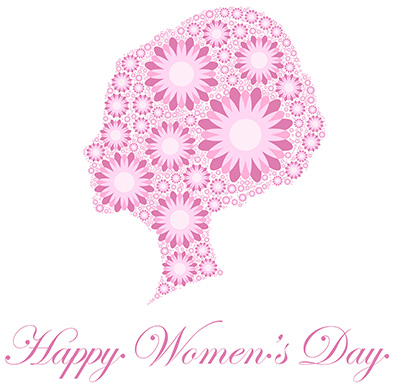The views expressed in our content reflect individual perspectives and do not represent the authoritative views of the Baha'i Faith.
I hope for a like degree of progress among the women… so that the whole world may bear witness to the fact that men and women have absolutely the same rights. – Abdu’l-Baha, Divine Philosophy, p. 88.
Twenty years ago, in 1995, thousands of the world’s most powerful and visionary women gathered in Beijing, China for a historic United Nations Women’s conference. There they agreed on a landmark document called the Beijing Declaration and Platform for Action, a historic roadmap for the progress of the world’s women ultimately signed by 189 of the planet’s governments.
That document set in place the global agenda for realizing and implementing the rights of women.
Today, two decades hence, we celebrate the U.N. Day for Women’s Rights and International Peace on March 8th as usual—but we can also use this day to look back and measure our progress as a global community on these critical Beijing Declaration goals.
The United Nations has concluded, in their summary report, that despite the many milestones and achievements women have successfully reached, serious gaps remain:
This is the time to uphold women’s achievements, recognize challenges, and focus greater attention on women’s rights and gender equality to mobilize all people to do their part. The Beijing Platform for Action focuses on 12 critical areas of concern, and envisions a world where each woman and girl can exercise her choices, such as participating in politics, getting an education, having an income, and living in societies free from violence and discrimination.
 As a result, today many governments and millions of women’s-rights activists across the world will commemorate that ground-breaking Beijing Declaration in 1995; celebrate the many achievements since then; and join together to galvanize action to address the gaps that still remain in making true gender equality a reality: www.unwomen.org/en/news/in-focus/international-womens-day
As a result, today many governments and millions of women’s-rights activists across the world will commemorate that ground-breaking Beijing Declaration in 1995; celebrate the many achievements since then; and join together to galvanize action to address the gaps that still remain in making true gender equality a reality: www.unwomen.org/en/news/in-focus/international-womens-day
The U.N. has announced the theme of today’s events and the ongoing campaign that will follow: “Planet 50-50 by 2030: Step It Up for Gender Equality.” The term “Planet 50-50” envisions a changed world, fifteen years from now, that will offer women an equal playing field in all human endeavors.
This major goal of the global community of nations echoes the Baha’i teachings regarding the equality of the sexes:
Surely God does not wish such an important instrument as woman to be less perfect than she is able to become! Divine justice demands that men and women should have equal rights, there is no difference between them, neither sex is superior to the other in the sight of God… Soon men will have to acknowledge women as their equals and there will be no need to struggle for their rights. – Abdu’l-Baha, Star of the West, Volume 2, pp. 4-5.
Ban Ki-Moon, the Secretary-General of the United Nations, issued a report that tracks the progress of women during the past 20 years since the Beijing Conference. In it, he noted that:
- Countries have increasingly removed discrimination in laws and adopted laws to promote gender equality and address violence against women and girls.
- There have been significant gains in girls’ enrollment in primary and secondary education.
- In some regions, such as Latin America, women’s participation in the labor force has increased.
- There has been a doubling in women’s representation in the world’s national parliaments, from 11% in 1995 to 22% today.
- Maternal mortality has decreased by 45% since 1990. All regions have increased women’s access to contraception.
- And significant normative advances have been made in the global agenda on women, peace and security.
The Secretary-General also noted multiple areas where major barriers to equality continue to exist:
- Discrimination in the law persists in many countries, particularly in the area of family law.
- Women’s increasing educational attainment and rising participation in the labor market have not been matched with better conditions, prospects for advancement and equal pay.
- In the last 20 years the global gender gap in labor market participation has only narrowed marginally, from 28 to 26 percentage points.
- Women continue to be clustered in vulnerable and informal types of work. The gender pay gap is a universal phenomenon.
- Heavy and intense unpaid care workloads limit women’s enjoyment of human rights in several areas.
- Violence against women and girls persists in all countries and in many forms.
- Unacceptably high levels of maternal mortality continue in some regions.
- Violations of women’s sexual and reproductive health and rights remain widespread.
- Women continue to be excluded from decision-making at all levels.
- And chronic underinvestment in gender equality is a major barrier to progress in all areas.
For more details, click here: www.beijing20.unwomen.org
Obviously, as the report’s findings clearly indicate, humanity still has a great deal of work to do on this critical issue that concerns everyone. Baha’is all around the world strive daily toward greater equality between women and men, and will do all they can to help achieve the shared Baha’i goal and the United Nations goal of Planet 50-50 by 2030.

















Comments
Sign in or create an account
Continue with Facebookor